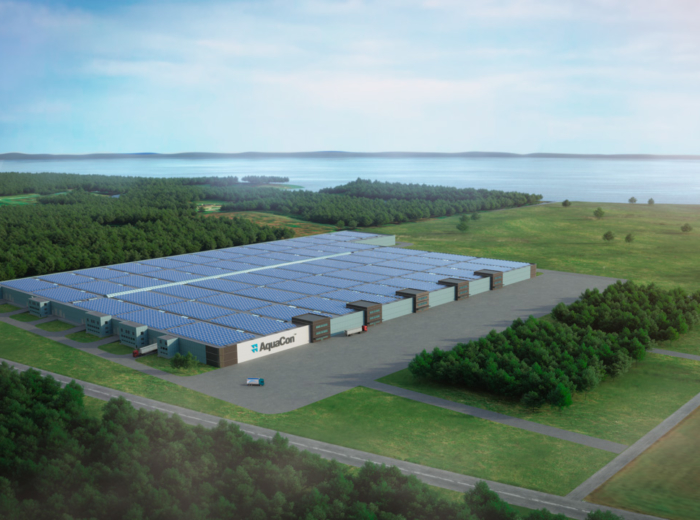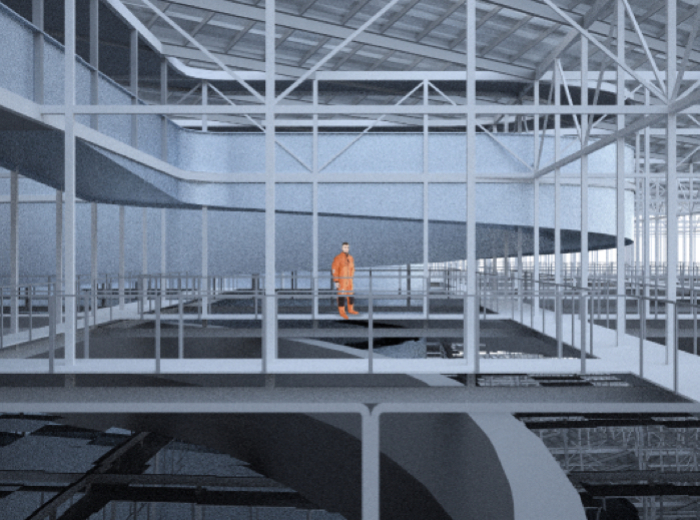Sustainability and ESG Focus
With sustainability built in from the start, we are deeply committed to delivering according to the UN´s Sustainable Development Goals. Our design is focused on sustainability, salmon welfare and achieving the lowest possible carbon footprint. Our seafood will be of the highest quality and produced in close proximity to consumer markets.

Three products
By transforming all our waste into re-usable ingredients we end up with three products and no waste. Our solid waste (sludge) is transformed into a soil enrichment product, which also enables us to re-use the sludge water after filtration. Byproducts from the fish production are sold to be used as ingredients in nutritional supplements and other products such as pet foods.

Renewable energy
We produce biogas and solar energy directly from our facilities. This ensures supply of renewable and clean energy in addition to substantially reducing our energy costs. Our ultimate objective is to solely use renewable energy for all of our sites.
Zero Water Change Technology
Zero Water Change goes a step further in reusing water by solid extraction, denitrification and phosphorus removal. We recycle 99.9% of the production water. It involves three phases: Plate separators, De-nitrification and De-phosphorus. Treated water from the De-phosphorus System goes back to Basic RAS.

People
AquaCon will employ 400 people with the three facilities in operation. Our people are our most important asset; and it is our desire to create the best working conditions possible. We are committed to equality between genders, equal pay, and fair compensation and working conditions. To ensure this we have included these goals in our sustainability reporting framework. We work towards 15 of the 17 SDG goals in our reporting framework and ensure their implementation in our daily operations. KPMG will assist with the sustainability reporting and auditing.
Global Seafood Alliance (GSA)
GSA is an international non-governmental organization dedicated to advocacy, education and leadership in responsible aquaculture, and is the leading standards-setting organization for aquaculture seafood. AquaCon is applying for a BAP 4-star status, which will assure comprehensive compliance with environmental, social, food safety, and animal welfare standards as required for premium market acceptance.
“We applaud your plans for several advanced practices that will raise the bar for environmentally responsible aquaculture.”
George Chamberlain, President of the GSA.

Consumer expectations
Consumer trends are centered around sustainability and health awareness. 70% of consumers believe we need to consume seafood from sustainable sources. Growing sustainability awareness promotes salmon consumption as a clearly superior source of protein, and land-based salmon production limits negative aquaculture effects on marine environment. The increased focus on healthy nutrition further drives consumer demand for salmon. Seafood Consumer Studies has found that North American retailers and end-consumers have expressed a high willingness to pay for healthy food products, produced in a sustainable and environmentally friendly manner.